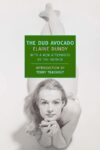
[Semiotext(e); 2020]
“When you’re young and new to New York it can get lost that people are looking for friends who are interesting,” writes Stephanie LaCava early on in her novel The Superrationals, a novel largely about the moments that come before dropping presumption, before shifting worldviews. It is a novel set at the cusp of adult jadedness, when one still privately, and desperately, clings to the naivety of one’s early twenties — anything to avoid the impending cynicism that comes with reaching thirty. It is a novel about everything leading up to the shake-up, to the precise moment of becoming changed, of becoming unmoored.
The Superrationals tells the story of Mathilde, a young art world-type as she navigates both her present — populated with bitter contemporaries and various paramours — and the traumas that plague her past. Through Mathilde, we receive dribbles of information regarding her late parents, specifically her mother Olympia, a famous editor who once had an impassioned love affair with the writer Robert, whose thread in many ways becomes the emotional core of the novel. There’s Mathilde’s best-friend Gretchen, too — naturally, this is also a novel about female friendship. A philosopher-activist-artist, Gretchen “said no one ever asked what her art or resistance was about, only what size she wore and if she’d be willing to cut her hair: Zero and No.”
Each chapter, set across New York, Paris, London, and Berlin, mostly over the course of a few turbulent months, corresponds to one of numerous characters, resulting in an eclectic web of art world and literati types. The most striking is the chorus of Mathilde’s gossipy coworkers from her auction house. “Mathilde had been excluded from the group: an aesthetic decision. (We always included her in our gossip.),” the chorus says. Like characters from a Mary McCarthy novel, these “girls” are sharply — satirically — drawn (they are pointedly never referred to as “women” in the novel). They dress up as a Baldessari for Halloween, but have miscommunications about possible client deaths. They are vicious, but brilliantly fail at veiling their jealousy. The only thing the girls of the chorus have in common, beyond occupation and artistic aspirations, is their shared contempt: “We were loyal to mutual hate.” The chorus isn’t completely deluded then; they have the faintest trace of self-awareness. About Gretchen, the girls of the chorus declare: “Fake working class roots, chill vibe and obscene money in the bank.” Mathilde puts it more kindly, and writes, “Gretchen was a complicated kind of survivor. One could argue she made poor choices in service of personal mythology, but she just didn’t think that hard about anything.” Then, at a later point: “She wanted to make something of her own and couldn’t, and didn’t realize her tenure as muse was for limited time only.”
Despite the novel’s acerbic edge, The Superrationals is more than simple farce. In addition to laughs, the chorus of girls provides LaCava with a mouthpiece to expel her critiques of a hyper-specific type of art world figure. The novel in itself is an exercise in critiquing the very worlds it will be consumed by, though LaCava does this with a fine touch, as if the oft-biting commentary of the international art industry, and media more broadly, is from a voice within. LaCava knows this world well enough to confirm it isn’t all bad, and so she cuts her subject with love. Maybe that’s why it isn’t a dour read — there is heart. Yet, the novel remains elusive. With a prologue-like opening that is both an assault of exposition, and yet incredibly opaque, we are warned that what we’re entering is something other, something uncanny, something slippery. For the most part, the chapters are short, diaristic, with clean, elegant prose that feels European in origin (I thought variously of Marguerite Duras, Annie Ernaux, and Tove Ditlevsen). The prose feels timeless, though the novel is decidedly fixed in the present moment. While reading The Superrationals, I considered another Semiotext(e) title: Jeanne Graff’s Vzszhhzz. Graff’s novel, like LaCava’s, is constructed through a web of characters (artists, businesspeople, philosophers, layabouts), and is staked to a particular time period, too. Both novels seem to occupy the same world, with the same transient characters who are irreparably unanchored. (I also thought of Eve Babitz, Elaine Dundy’s The Dud Avocado, Fiona Allison Duncan’s Exquisite Mariposa, and any of Kaitlin Phillips’ short “fiction”).
Though there is plot to The Superrationals, it’s not so much about the plot but about an exercise in mise-en-scene. There’s something cinematic to the novel, as if Eric Rohmer had chosen to depict the idle lives of wealthy art people away from the French Riviera for once and instead stuck them in the isolating grime of the world’s art capitals. Like a Rohmer film, there’s a languorousness to The Superrationals. The characters are mostly unsuccessful near-layabouts going along with the motions expected of them, until they’re not. But, unlike a Rohmer film, this is a narrative of consequence — there will be no minor ending. LaCava is most concerned with building out the lived experience, the texture, however rough and synthetic, of her characters’ lives. There’s familiarity to the web of the novel — as in, they are people we might know, and people LaCava definitely knows. Despite their faults, and their superficial shine, they are not despicable. They, too, can suffer. It’s a testament to LaCava’s skill, and the verisimilitude of her novel, that we fall for them. Did I miss the chorus after reading the novel? Maybe.
It’s also a strange testament to LaCava’s skill that the sections with the most heart are Robert’s. There is an unparalleled tenderness present in his chapters. Robert, like Mathilde, is still mourning the loss of Olympia ten years after her passing. But, unlike Mathilde, he does it explicitly. Maturely. Mathilde’s poor-decision making, from her generally impulsive behavior to her sleeping with the “wrong” men, is arguably still a result of this emotional negotiation. Her missteps seem to be no more than a product of how she is still navigating the loss of her parents — this is part of her process, whether she acknowledges this or not. But Robert, in his age, understands loss still marks his day to day, and he never denies how his life remains changed after death. His sections are most consumed with minutiae: of writing, living, being. And how this minutiae is still haunted by his past with Olympia. One section alone is titled, “Log to remember to tell Olympia,” and consists of a list of things from Robert meant to be shared with Olympia. Is the list itself old, something written when Olympia was still alive? Or is it a list he keeps up to date, something he wishes he could still share with Olympia, and something he knows he’ll share as his own life inches closer to an end? At another point, Robert writes, “I was deep into a project that I knew Olympia was perfect for. It was a sort of farce, knowing and funny, but unusual in its non linear narrative.” Again, this novel is certainly self-aware, reaching meta heights, often finding the narrative folding into itself, collapsing the boundaries of LaCava’s world with the world within the novel, with the novel as an artifact itself. Don’t get me wrong, there’s clear intentionality here. LaCava knows what she’s doing, and she does it well, finding pockets wherever she can to tuck in her kernels of critique.
Mathilde’s chapters, for example, are intercut with pieces of her would-be art history dissertation, having vaguely to do with “doll parts” (the actual title is “Transmuting Desire: Memory, Mannequins, and The Contemporary Reliquary An Exploration of the Unsaid, Unseen, Uncanny, Space, the In Between”). Through these sections, LaCava is able to sound-off on Mike Kelley, George Bataille, Bruce Nauman, Carolee Schneemann, Stephane Mallarme, Donald Judd, and Cy Twombly, among many others. Like this abandoned project, Mathilde’s occupation is left vague, which in itself is perhaps a jab at the art industry (she says simply at one point, “I was herding objects”). But, in a way, the dissertation counters the disillusionment in the art world that is more clearly teased out throughout the rest of the novel. The art world can’t be all that bad, per Mathilde’s notes. Art existed outside commerce once, and perhaps it can again.
The Superrationals is a sharply observed novel, marked by moments of gleeful deadpan, that is perhaps most preoccupied with a hyper-specific brand of existential malaise: the kind belonging to monied folk too intelligent to keep to their expected routes but too privileged to have to ever face real catastrophe. The adversity Mathilde and Gretchen face is that of catty women and bad men — which does not make it any less painful, but wealth and connections will certainly cushion their falls. But LaCava presents much of this from a remove. Though the carousel of characters intersect, the connections among them seem distant — in many ways, like real humans, they struggle to make connections. The decisions the characters make seem against instinct, too — their choices happen almost as if they had no choice to begin with. This is most true with Mathilde, who swings through the novel from one poor decision to another, until she eventually faces her fall, both a turning point in the novel and its literal end. In game theory, superrationality refers to a kind of equalizing of strategy: if participants are superrational, they will come up with the same strategy when facing the same problem. In a novel where decisions are made with little calculation, I wonder if LaCava believes this to be true about her contemporaries: would we make the same choices Mathilde and Gretchen made if faced with the same problems?
As the novel reaches this finish, the impression is that Mathilde is about to embark on her actual journey; what we’ve witnessed is everything before. It’s a fine feeling to experience the build-up, tasting the emotional resonance and knowing more lies just out of reach, but certain it is there. In a gesture towards what is to come, Mathilde writes earlier in the novel, “I, on the other hand, was too careful, had always been, worried I was destined for an accident, an explosion, a misstep. The problem with keeping straight when you’re young is you inevitably need to fill that void of experience. It’s only a matter of when.” That moment comes at the end, and we depart with the gratification of knowing it certainly has arrived. Stephanie LaCava, too, has arrived — as a unique and mature voice in fiction. Did I mention this is her first novel?
Josh Vigil is a writer living in New York.
This post may contain affiliate links.







